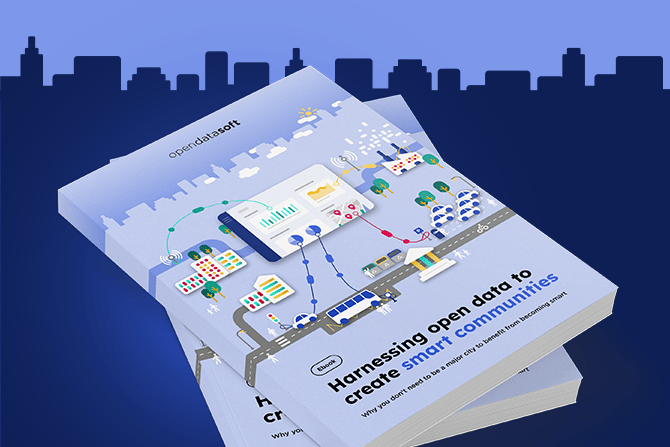How APIs Can Strengthen Your Smart City Initiatives
This article takes a look at Pittsburgh and Boston's recent RFIs concerning smart technology and IoT. It also explains why APIs can only make your Smart City initiatives stronger.

Start small. Stay flexible. That’s the mantra coming out of recent smart city initiatives in Pittsburgh and Boston. To which we at Opendatasoft would add a necessary corollary: Build in strong APIs.
First, Some Background.
In March 2017 Pittsburgh released a “Request for Information” from companies interested in upgrading the city’s streetlights with smart technology. In the RFI (a precursor to a Request for Proposals meant to help a city identify solutions to a problem), Pittsburgh showed interest in technology that could be added to the streetlights to manage traffic, detect gunshots, and provide internet service, among other applications. Several months previously, Boston had released an RFI for its own smart cities initiative, but with broader aims: it asked for any and all ideas related to smart cities or Internet of Things that could achieve several goals, including “Increase Digital Access & Equity” and “Deliver Exceptional City Services.”
(Find here the responses to the two RFIs ).
Boston also recently released a Request for Proposals to operate and drive forward its Beta Blocks program. Beta Blocks is meant to increase community involvement in developing solutions to problems of daily city life using particular blocks as testing grounds for new technologies. One of the deliverables in the RFP is that the developer build in “plug and play” opportunities for researchers studying Beta Blocks.
While the two RFIs announced a broad vision, there is good evidence that the ultimate solution(s) for which the cities choose to proceed to procurement, at least at first, could be rather small.
Nicholas Hall and Robert Burack, who both work with the city of Pittsburgh on open data solutions, wrote that after a mixed bag of responses to the RFI, Pittsburgh concluded that there was not yet consensus on the best uses of smart technology on streetlights. Pittsburgh therefore concluded, according to the authors, that “cities involved in streetlight-centered smart city initiatives would be well-served by making the minimum possible investment in specific device technologies, while still taking advantage of the streetlight deployment project to establish a foundational network for future device technologies.”
Boston’s RFI, meanwhile, directed applicants to its Smart City Playbook, a uniquely tempered and often funny vision statement from the city’s Office of New Urban Mechanics. Point 5 of that playbook directs the technologist to present solutions to discrete problems, with a clear user in mind, rather than proposing a “platform” for a top-down smart city. The Smart City Playbook provides an important starting point for technologists to develop usable solutions for city problems. However, the focus on developing discrete solutions to specific problems risks exacerbating the silos that exist across departments within City Hall.
Both examples suggest an approach that starts small but builds in opportunities for synergies with other technologies, including those that have yet to be developed. To achieve those synergies, any product will need strong Application Programming Interfaces (APIs). An API-based solution can help interconnect different Smart City initiatives and devices across departments and take advantage of the full capability of Smart City technologies by linking them and the data they generate in new ways.
APIs: An Essential Piece of the Puzzle.
APIs are crucial for allowing software developed by different vendors to work together automatically, capturing and building off of data updates in real time. Smart city solutions, almost by definition, generate a ton of data. Those data are most valuable when entrepreneurs with a different problem in mind can access them in “plug and play” format. APIs allow third parties to do just that: build new applications that rely on continuously updating datasets without having to constantly update the connection or code. Coupled with powerful database architecture and privacy protocols, APIs are essential to the networked, grassroots strategy Boston and Pittsburgh hope to employ.
Opendatasoft has seen the importance of high-quality APIs in our own work. Whether it’s real-time bus positions or electricity consumption, APIs have been crucial for our clients to facilitate entrepreneurial third-party uses of their data.
Start small. Stay flexible. Ensure high-quality APIs. With this updated mantra, IoT and big data can truly make this the best of times for cities like Pittsburgh and Boston.




